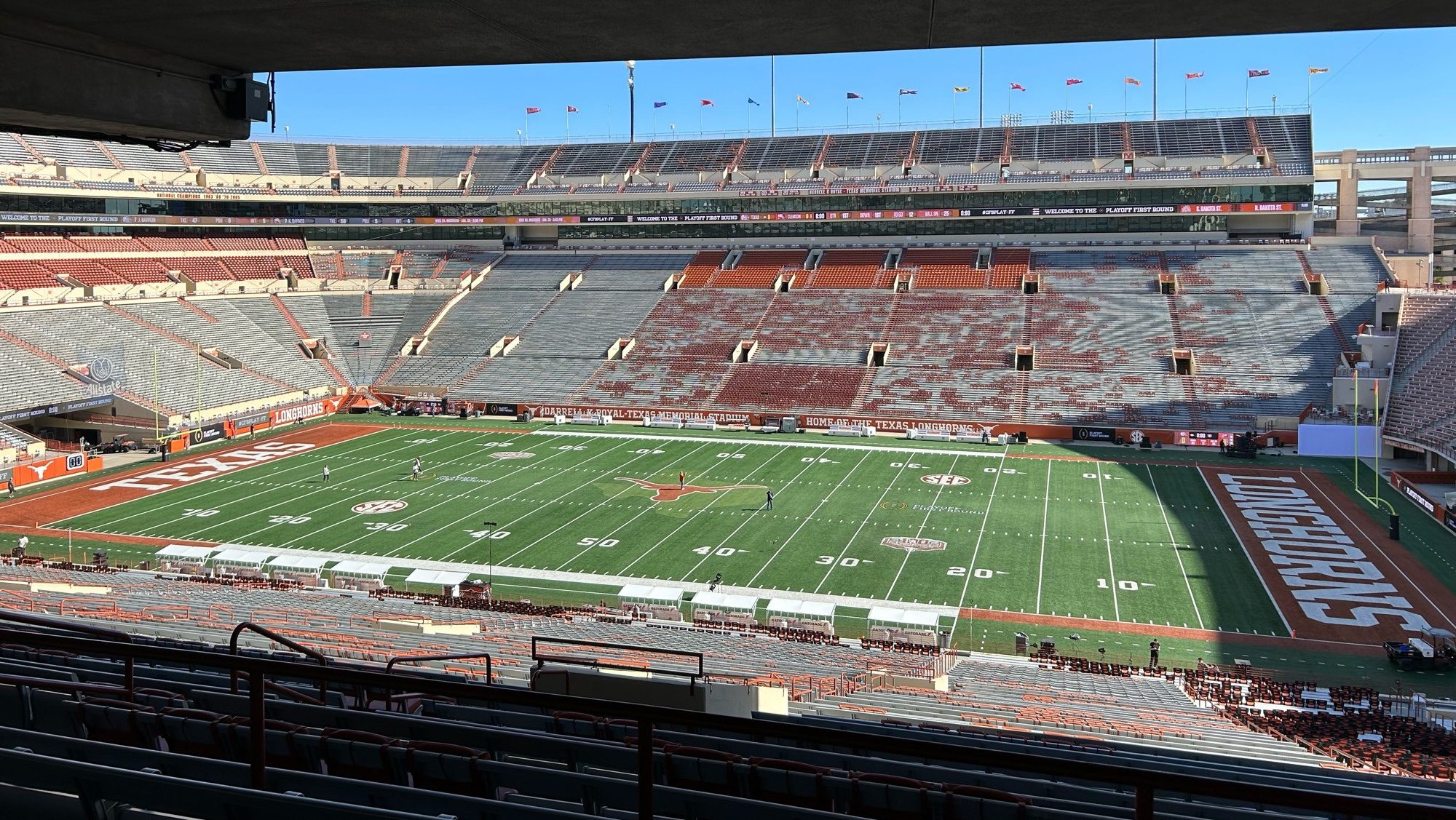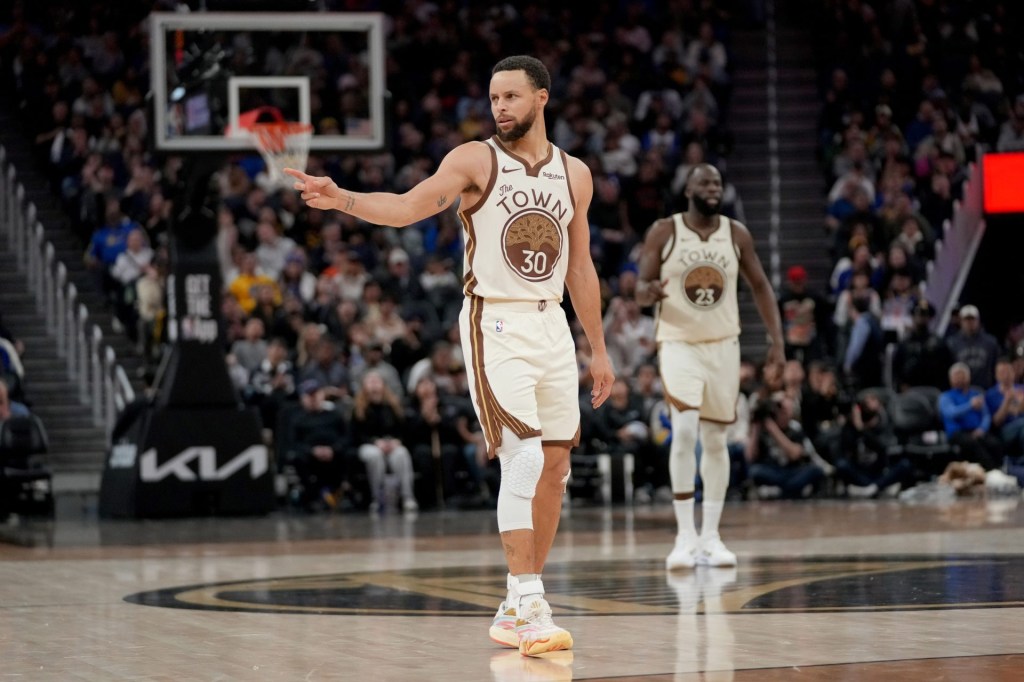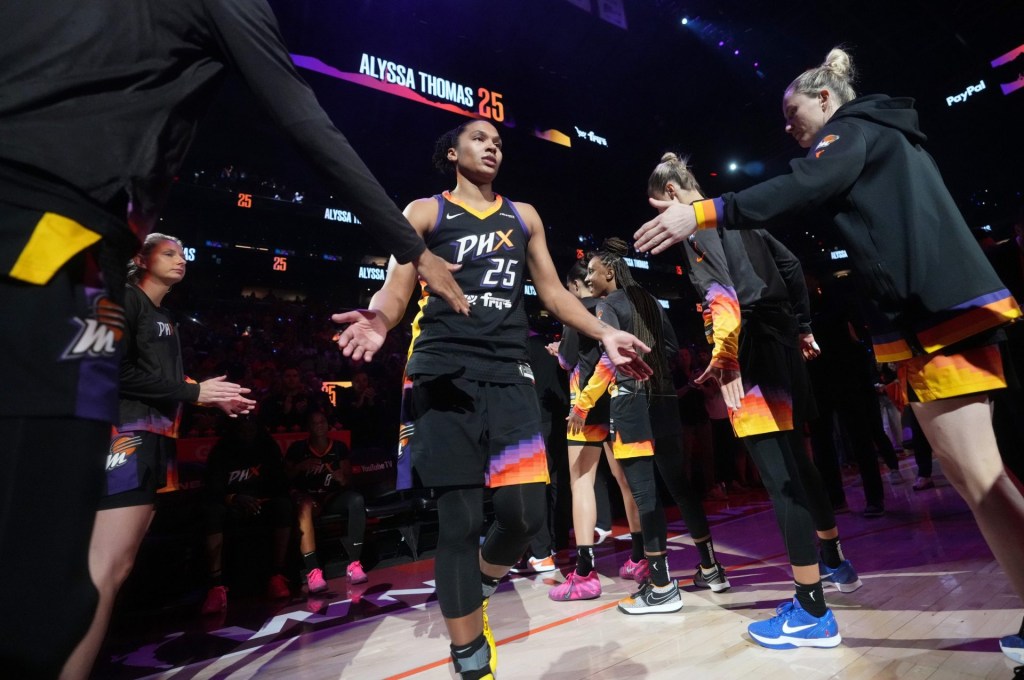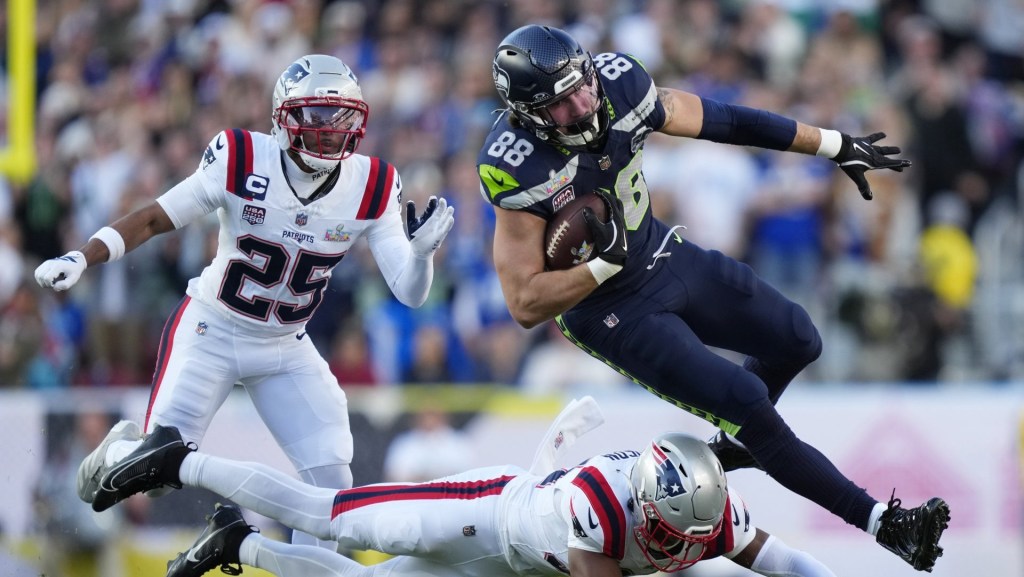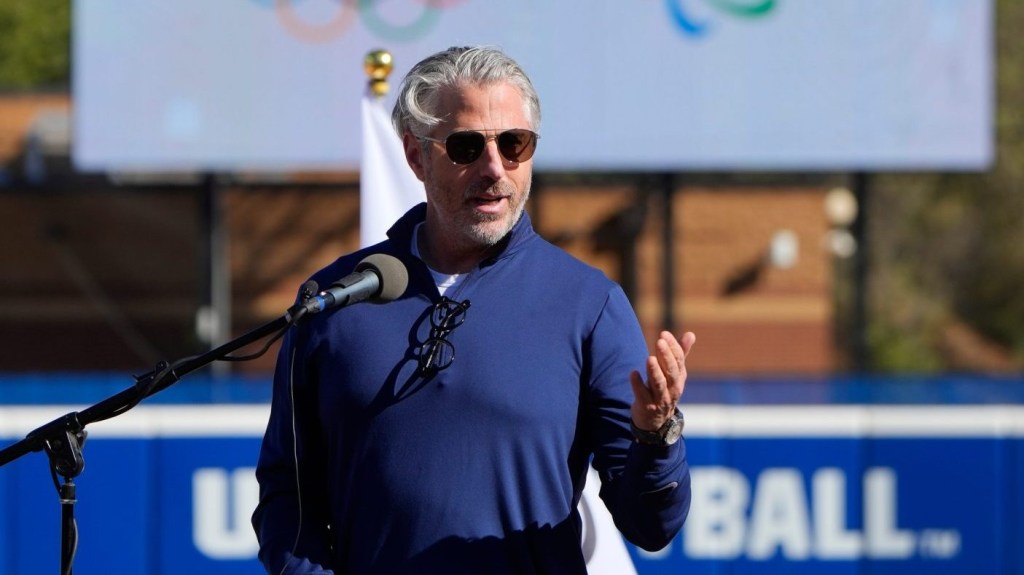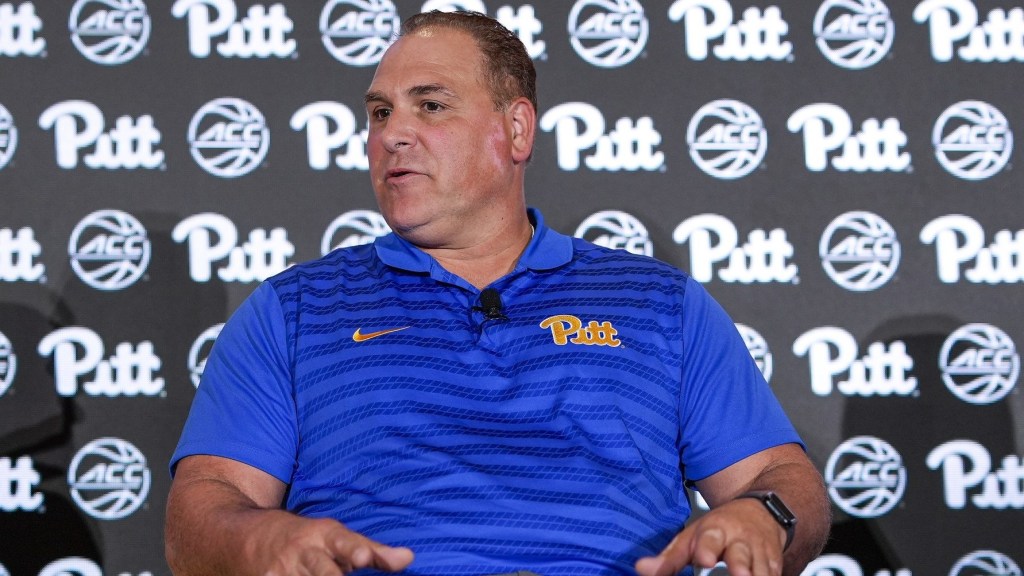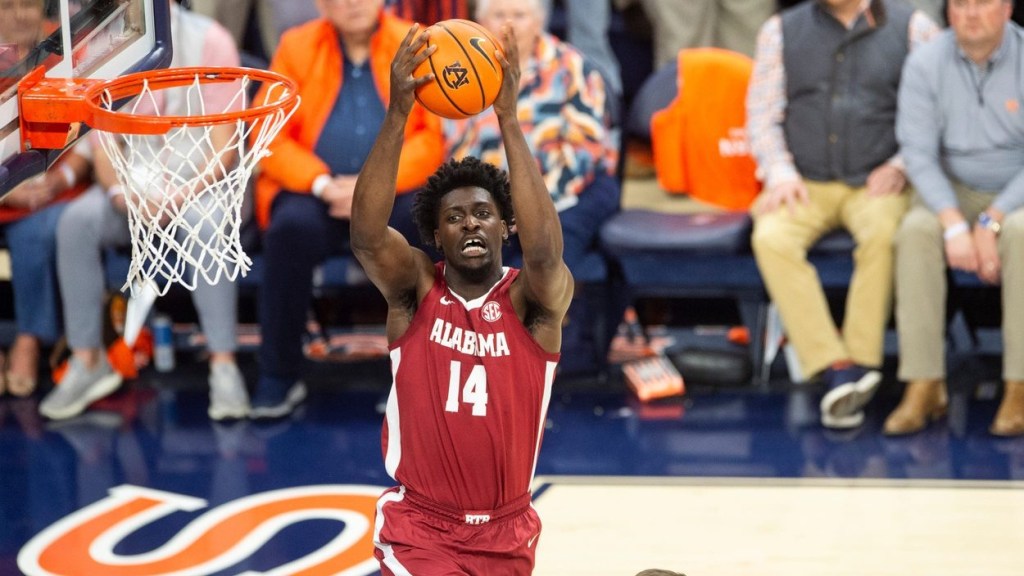AUSTIN — Friday morning, Texas senior associate AD for external affairs Drew Martin sat in a large, burnt-orange armchair in his in-stadium office, sipping decaf coffee. It was the day before the Texas Longhorns would host their first-round Playoff game against the Clemson Tigers, but Martin exuded an air of serenity.
“It’s eerie how relaxed everybody is today,” he told Front Office Sports.
This weekend, four schools are hosting the inaugural first-round games of the expanded College Football Playoff. The CFP opted to experiment with on-campus matchups for the first time in Playoff history.
The schools had only two weeks to put the event together between when they found out they’d be hosting and gameday. But the CFP, ESPN, and TNT (which has sublicensed two first-round games), local authorities, and dozens of FBS programs have been engaged in months of detailed planning. It’s all led up to this moment.
“The only things that would keep me up at night during the whole process was just, what is the final decision on certain things?” Martin said. But by gameday-eve, the only final decision left was which team would make it to the next round.
The CFP has been discussing logistics since 2022, when the format was finalized. Given that any FBS program could be eligible to host a game, organizers reportedly reached out to hotels in every market—inking about 90 contracts for room blocks that they slowly began to cancel as the season evolved, and it became clear where the most likely host sites would be.
For the schools themselves, planning began months ago, Martin told FOS, with Zoom meetings with CFP officials and internal conversations for all possible logistics, from ticket sales to media credential accommodations. ESPN, which is producing all four games, developed a survey to send to about 80 potential host sites to prepare for different location scenarios. While the network is familiar with Texas Memorial Stadium, for example, it hasn’t broadcast a game at Notre Dame Stadium since 1990—so some schools would require more preparation than others.
Aside from some small adjustments, a school like Texas—which is used to hosting tens of thousands of fans and a media circus—would be running gameday similar to any other important matchup. “It feels very much like a home football game,” Martin said.
On Sunday, Dec. 8, the CFP released its final regular-season rankings. Texas had lost the SEC championship to Georgia, and therefore the opportunity for a first-round bye. But because the Longhorns were still ranked in the top eight, they got the opportunity to host.
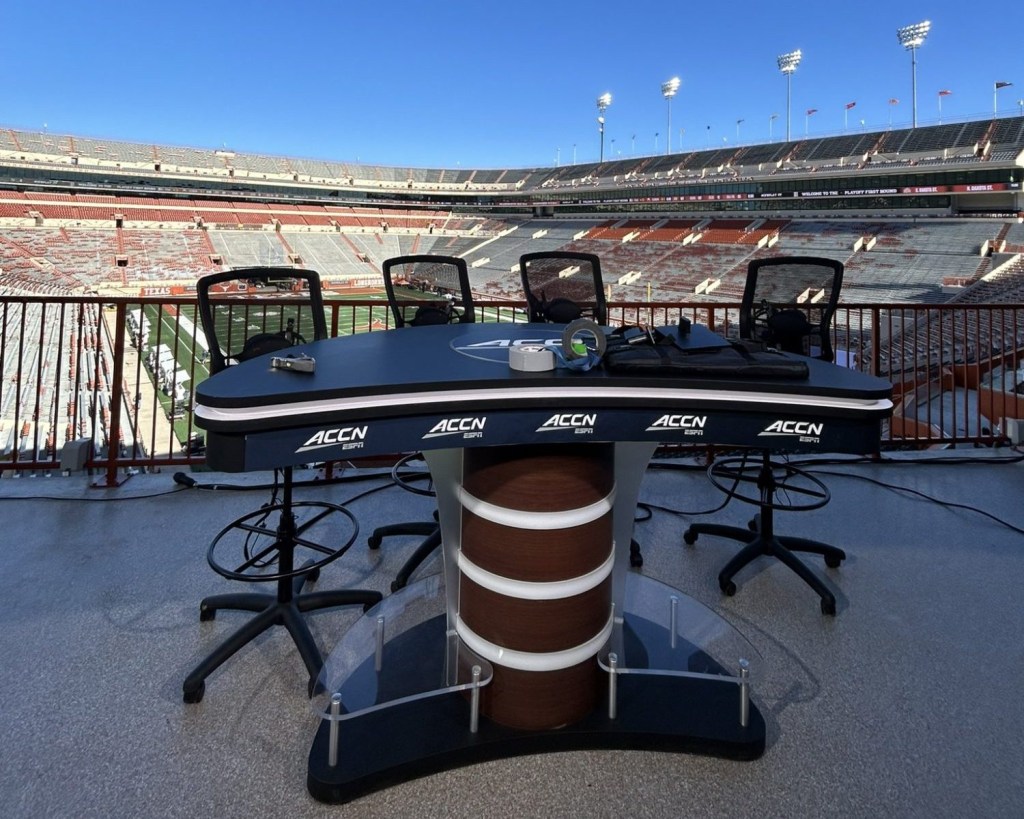
Texas Memorial Stadium holds more than 100,000 fans—but they’re only some of the people roaming the grounds on Saturday. ESPN is sending about 90 crew members for the game broadcast—twice as many as they would for a normal home game, according to ESPN senior manager of remote operations Jarrett Baker. Both ACC Network and SEC Network will broadcast pregame shows from inside the stadium. (Other sites have even more traffic in the TV truck area: College GameDay visited South Bend on Friday and will go to Columbus today; TNT hosted a pregame show in State College on Friday, and the network will broadcast ESPN-produced feeds of SMU–Penn State and Clemson-Texas.)
Despite the fact that tens of thousands of fans and hundreds of media members have descended upon Austin this weekend, the travel logistics were much easier than they were at more rural schools. Paid occupancy for hotels is up 90% year over year, Austin Sports Commission director Drew Hays tells FOS. But with so many hotel options, the city didn’t see the same surge in prices—and sellout rates—that State College and South Bend saw, even in the weeks before the sites were even made official. ESPN, for example, had to put many employees going to Penn State at hotels an hour away from Beaver Stadium, and they will run shuttles on Saturday morning from hotels to the site.
“Austin is not unfamiliar with big events,” Hays says. “So when opportunities like this come along, it’s more exciting than it is daunting.”
Texas Memorial Stadium will have all its usual bells and whistles on gameday, from a free outdoor pregame concert to a lineup of food trucks and a street fair atmosphere outside.

The matchup is completely sold out, Martin said, with the get-in price for tickets on the secondary market at around $100. The opposing team gets 3,500 tickets, including band members per CFP rules, so most of the stadium is expected to be filled by Longhorns fans. The student tickets are sold out, too—quite a feat given the semester has already ended and dorms are technically closed and have minimal holiday operations. Students had to pay only $25 for tickets—a price set by the CFP. Season-ticket holders received a slew of emails in the weeks leading up to the game, and they jumped at the opportunity to buy tickets. (It’s unclear whether certain celebrity fans, like actor and known Longhorns superfan Matthew McConaughey, will be in attendance.)
The sellout is great news for the city of Austin—but the timing of the matchup is even better, Hays says. With a 3 p.m. local kickoff time, many fans are staying overnight both before and after the game, and will have mealtimes free to explore the city’s bar and restaurant scene.
As for the broadcast, ESPN is giving Clemson-Texas first-class treatment, with everything from extra pylon cameras to other features dotted across the stadium. The network has a new graphics package and creative look—but is hoping to keep things mostly routine.
“I was on a production call earlier today. … The conversation was, ‘Hey, yeah, this is a big game. But we do big games during the regular season,’” ESPN VP of production Amanda Gifford tells FOS. “Let’s not overthink anything.”
On Friday, the athletic department offices weren’t empty, but they were quiet. The ESPN crew was still mounting some cameras and putting the finishing touches on pregame preparations. The pregame show sets for ACC Network and SEC Network had been set up. Fans and college football officials were on their way to Austin.
“You must be ready for every scenario,” Martin said while sipping from his electric-blue mug. “Which makes weeks like this, and days like today in the hours leading up to this game, feel very under control and normal.”
